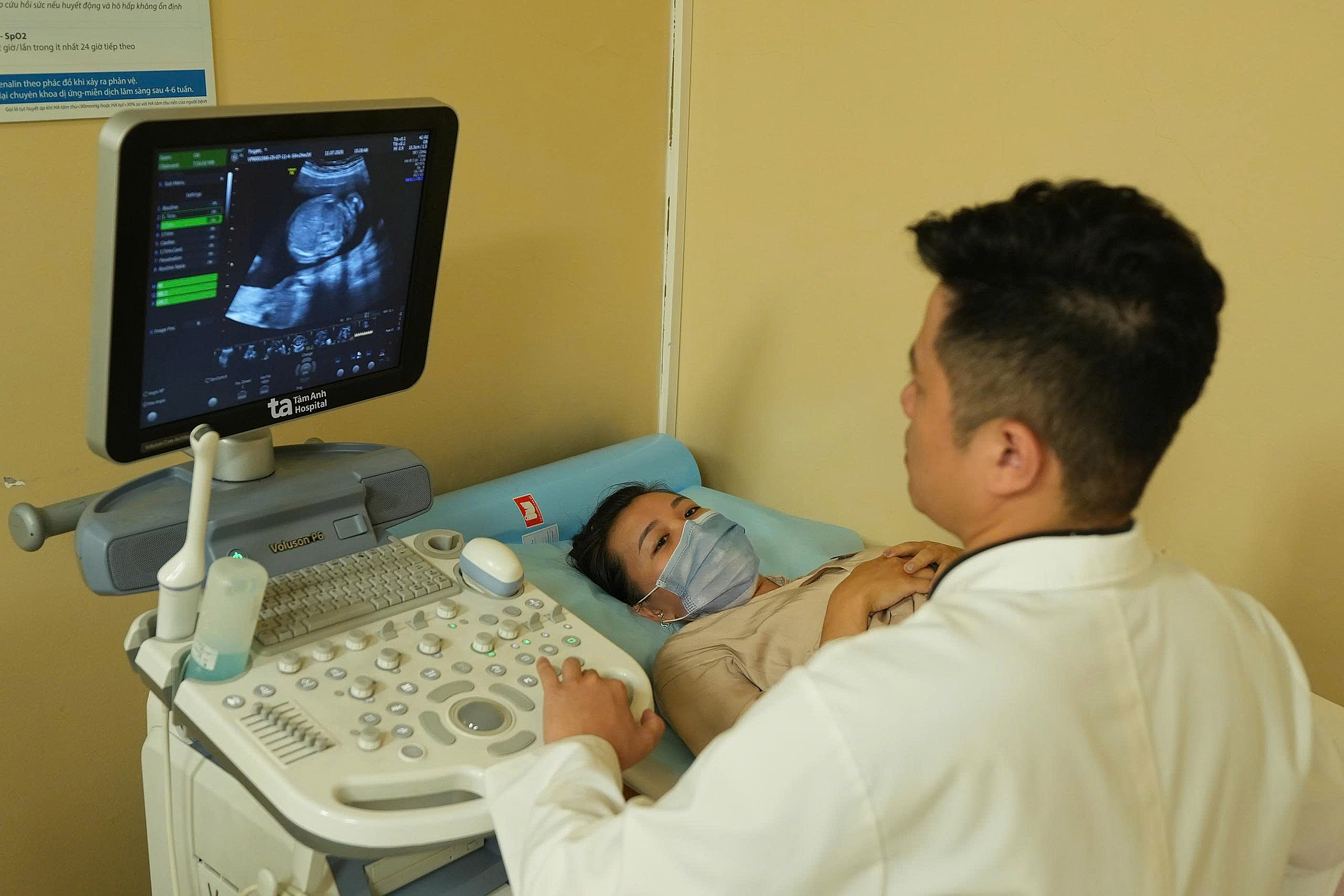Intrauterine growth restriction (IUGR) occurs when a fetus doesn't reach expected size and weight milestones, impacting cell, tissue, and organ development relative to gestational age.
Doctor To Thi Hong Nhung from the Obstetrics and Gynecology Center at Tam Anh General Hospital, Hanoi, explains that IUGR can occur at any point during pregnancy. Genetic factors, like small parents or a maternal history of low birth weight babies, often play a role. However, in many cases, IUGR signals potential health risks for both mother and baby.
Maternal factors
The mother's health during pregnancy is a crucial factor in IUGR. Conditions like high blood pressure, diabetes, anemia, chronic kidney disease, lupus, blood clotting disorders, or autoimmune diseases can restrict blood flow to the placenta, reducing oxygen and nutrient supply to the fetus. Smoking, alcohol consumption, substance abuse, or exposure to environmental pollution also increase the risk. These harmful substances can constrict blood vessels and disrupt oxygen and nutrient exchange between mother and fetus.
Poor nutrition is another common contributor. Insufficient intake of protein, iron, folic acid, zinc, and B vitamins can lead to maternal anemia and malnutrition, hindering weight gain and fetal development.
Fetal factors
Placental abnormalities such as placenta previa, placental abruption, placental calcification, or placental vascular disorders can impair placental function, disrupting nutrient and oxygen exchange, and leading to slow fetal growth. Doctor Nhung estimates that placental-fetal circulatory insufficiency is a significant factor, accounting for 30-40% of IUGR cases, especially those occurring before 32 weeks.
An abnormally short umbilical cord, multiple cord loops around the neck, or cord compression can restrict oxygen and blood flow, depriving the fetus of essential nutrients. Uterine abnormalities like a uterine septum, bicornuate uterus, or large fibroids can also restrict fetal growth by limiting space.
According to Doctor Nhung, approximately 20% of IUGR cases occurring before 32 weeks are associated with structural or chromosomal abnormalities, including heart, brain, kidney, or musculoskeletal defects. Infections during pregnancy, such as cytomegalovirus (CMV), rubella, or toxoplasma, especially in the early stages, can also damage fetal organs and restrict growth.
IUGR can lead to serious complications like fetal distress, premature birth, neonatal hypoglycemia, hypothermia, infections, or perinatal death (within the first week after birth). Long-term consequences for the child can include malnutrition, delayed motor and language development, behavioral disorders, or chronic diseases like hypertension, diabetes, and cardiovascular problems in adulthood.
Doctors monitor fetal growth through ultrasound scans, assessing indicators like head circumference, abdominal circumference, femur length, and estimated weight against standard growth charts. An IUGR diagnosis is made if these measurements fall below the 10th percentile, especially in conjunction with reduced blood flow in the umbilical artery.
In addition to ultrasound, doctors may recommend Doppler ultrasound of blood vessels, non-stress tests (NST) to monitor fetal heart rate, amniotic fluid assessment, blood tests, or congenital infection screening to determine the cause of IUGR.
 |
A doctor at the Obstetrics and Gynecology Center performs an ultrasound on a pregnant woman. Photo courtesy of the hospital. |
A doctor at the Obstetrics and Gynecology Center performs an ultrasound on a pregnant woman. Photo courtesy of the hospital.
While complete recovery from IUGR isn't always possible, early detection and close monitoring can improve outcomes. In mild cases, doctors advise pregnant women to rest, maintain a balanced diet, take supplements, and attend regular check-ups. If fetal distress is a concern, early delivery (C-section) may be recommended to ensure the baby's safety, especially after 34 weeks or when the fetus is sufficiently mature.
To prevent IUGR, expectant mothers should schedule early and regular prenatal check-ups, manage any chronic conditions, follow a healthy diet, avoid alcohol, tobacco, and stress, and maintain a positive mindset throughout pregnancy. Women with a history of IUGR or low birth weight babies should be closely monitored from the beginning of their pregnancy.
Trinh Mai
| Readers can submit questions about pregnancy and childbirth here for doctors to answer. |












